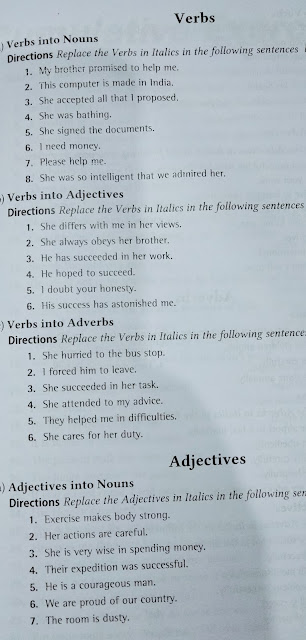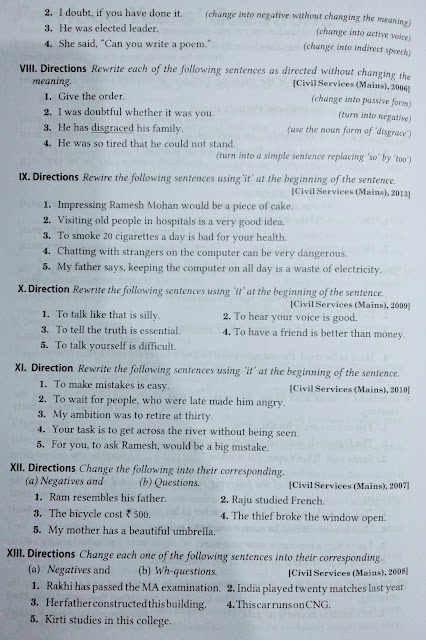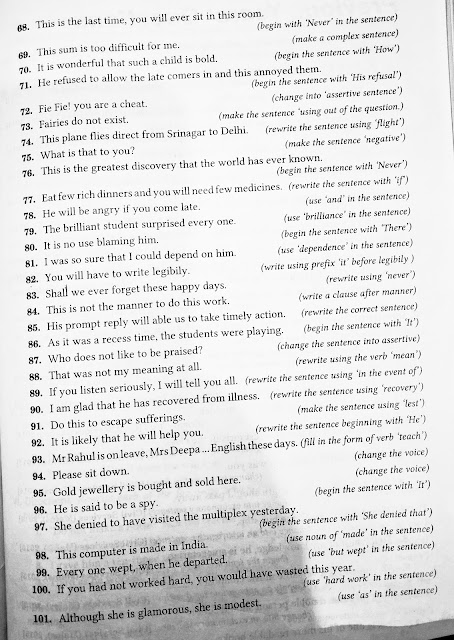Adverb - An adverb describes how the action is performed. They tell how much, how often, when and where something is done.
Noun - A noun is a person, place, thing, or idea. Nouns are the subject of a sentence.
Common Noun - A noun that does not name a specific person, place or thing.
Proper Noun - The pronoun is a word used in place of one or more nouns. It may stand for a person, place, thing, or idea.
Adjective - An adjective is a word that describes a noun or pronoun. It tells what kind, how many, or which one.
Conjunction - A conjunction is a word that joins words or word groups together. Some examples conjunctions are: and, but, or, nor, although, yet, so, either, and also.
Preposition - A preposition is a word that shows position or, direction. Some examples are in, out, under, over, after, out, into, up, down, for, and between.
Homophones - Homophones are words that sound alike but they have different meanings and different spellings.
Homographs - Homographs are words that may or may not sound alike but have the same spelling but a different meaning.
Complex Sentence - A complex sentence is an independent clause joined by one or more dependent clauses.










No comments:
Post a Comment